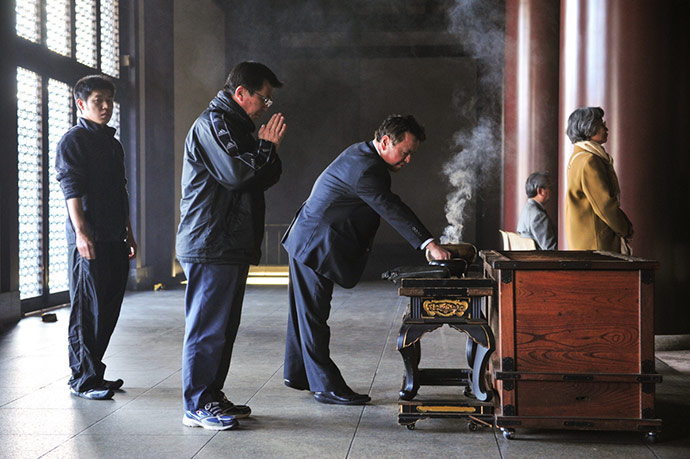
Ministry Updates
Christianity in Japan: Take A Bow? Believers Say No Thanks
October 10, 2013
by Interactive Supply

In Japan, the moment of truth for a Christian often comes during a funeral.
At Buddhist funerals — which constitute around 90 percent of them in Japan — the custom is for mourners to pay their respects by bowing before the deceased and offering up a prayer to the dead, often along with some incense. When it comes to Christianity in Japan, that practice poses a big problem. Most Japanese Christians stop praying to the dead and other spirits when they start following Jesus.
According to Stella Cox, a longtime TEAM missionary in Japan, funerals are often big social events akin to a wedding. They can draw large crowds of family and friends. With so many eyes watching, refusing to bow to the deceased isn’t just an act of faith, it can invite shame and ostracism from offended family and social groups. And that’s no small thing in a society that places such high value on social acceptance.
“When you go to a funeral, you have to worship the dead. And if you don’t, you’re kind of discriminated against by the family and other people who will say, ‘Who do they think they are?’” Cox said. “Japanese Christians have to take a stand, (and) this is maybe one reason they won’t be baptized or won’t believe. They know if they believe, this is what the cost is going to be.”
Christians have found creative ways around the dilemma. Some will approach the deceased and offer a flower in lieu of a prayer. Cox knew one young woman who volunteered to be the receptionist at her father’s funeral to keep busy enough to avoid the spectacle.
But others are more bold.
Cox told the story of a man who went to his mother’s funeral in a small country town, where Buddhist funeral traditions run especially deep. As the oldest of her sons, he shouldered the responsibility for organizing the event, the day’s mover and shaker who would be watched closely. Everyone knew he was a Christian. When his turn came to bow to the dead, he stepped up and paused, staring. After a moment, he turned around toward the audience and bowed to them instead, as a cadre of Buddhist priests looked on.
“That’s what’s against them becoming Christians there,” Cox said.
At TEAM, we talk a lot about our commitment to the church. TEAM missionaries serve broadly in a diverse array of ministries and projects, but they are united in their focus on supporting and growing the church wherever they are.
This is not just because church planting is one of the most effective evangelism strategies out there (though it is). It is also because the community of a church is the single greatest tool we have for discipleship, the process of being transformed to become more like Christ. And discipleship is what turns us into the kind of people who can deal with “moments of truth,” tests like a Japanese funeral that force us to take a stand for Christ.
It’s not just Christianity in Japan, of course. Every culture presents its moments of truth. In a Muslim context, it may be risking persecution by skipping out on Friday prayer at the mosque. In Latin America, it may be inviting a family’s scorn by being baptized in a Protestant church. Or in the United States, it may be risking discrimination at the office when you explain why you need Sunday off.
We emphasize church-based discipleship at TEAM because the ultimate goal of missions is not just to make believers. It’s to make muscular disciples who glorify Christ by boldly following Him wherever He leads. Only discipleship can shape the type of Christians who are able to hold fast in their moment of truth, able to take a deep breath, turn toward the audience, and bow.
Related articles


